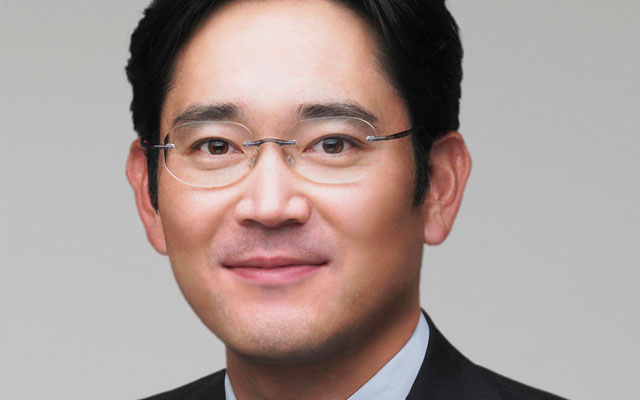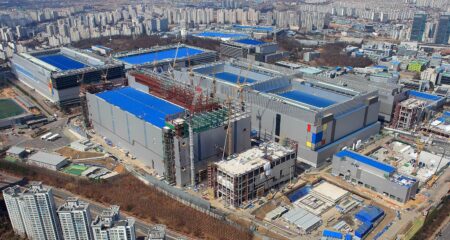
Samsung Electronics’ shareholders will be meeting for the first time since the arrest of de facto chief Jay Y Lee, with questions looming over whether any changes to its corporate structure are in store.
The only votes being held on Friday will be on the South Korean company’s financial statements and directors’ compensation. The annual meeting, however, will be an opportunity to question Samsung’s board as it reviews whether to separate the electronics conglomerate into a holding company with operational businesses.
Samsung embarked on a review of its structure in November after activist shareholder Paul Elliott Singer pushed for more independent board members, a US listing, special dividends and a split of the company.
Since then, Lee has been caught up in a national influence-peddling scandal, standing trial on charges of bribery and embezzlement. Given the uncertainty surrounding the world’s biggest maker of smartphones, the questions may be lively but won’t lead to any surprises, according to Heo Pil-seok, CEO of Midas International Asset Management.
“With Lee detained, Samsung probably isn’t going to pull off a surprise like converting into a holding company right away,” Heo said. “Still, shareholders can raise their hands, out of the blue, to lob whatever they have on their mind at management.”
Lee, 48, in detention since February, has denied all allegations. His trial began on 9 March and a second hearing is being held Thursday. A verdict is expected in May.
Even amid the turmoil surrounding Samsung, including an embarrassing recall of smartphones last year, the company’s shares are trading near record highs. The stock has climbed more than 25% since the company announced the restructuring review in November.
Elliott lost a fight to prevent the 2015 merger of two affiliated units, Cheil Industries and Samsung C&T, which helped to cement Lee’s control over the empire founded by his grandfather.
The allegations against Lee include assertions that he won support for the merger from Korea’s National Pension Service in exchange for helping a friend of former President Park Geun-hye. Still, if Samsung turns into a holding company, Lee would solidify his control over Samsung Electronics without a huge cash outlay, because he can rely on his stake in Samsung C&T, which owns more than 4% of the technology division.
Elliott, which still retains an undisclosed amount of shares in Samsung, declined to comment.
Last week, Samsung reaffirmed that it was still conducting a “thorough review of the optimal corporate structure, including the possibility of creating a holding company.” Shares of Samsung affiliates jumped on earlier reports that chief financial officer Lee Sang-hoon said the company is looking at whether to transform itself into a holding company.

Another key question is how Samsung is preparing to rebuild following the Galaxy Note7 debacle. The exploding phones, caused by battery defects, forced the Suwon-based company to pull the devices from shelves and cancel production, costing it more than $6bn. Less than a week after Friday’s shareholder meeting, Samsung is set to unveil the S8, the newest version of its flagship smartphone.
Overshadowing the meeting is increasing public scrutiny over chaebol, South Korea’s sprawling family-run conglomerates, and their close ties to government.
Earlier this month, three political parties with a combined majority agreed to push for reforms that would make it difficult for holding companies to use buyback shares to control their operating entities, a measure that could impact Samsung should it decide to adopt a new structure.
“Lee’s arrest has been a wake-up call for Samsung that transparency forms the bedrock of changes for good corporate governance,” said Ryu Young-jae, head of Sustinvest, a Seoul-based corporate advisory. “Samsung has an opportunity this Friday for soul-searching in front of its shareholders and to show its commitment to put behind the practices that have kept the company from the valuation that it deserves.” — (c) 2017 Bloomberg LP




